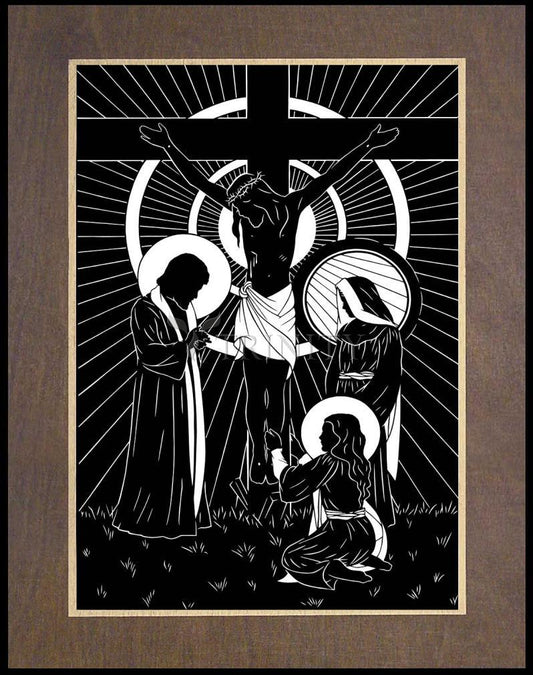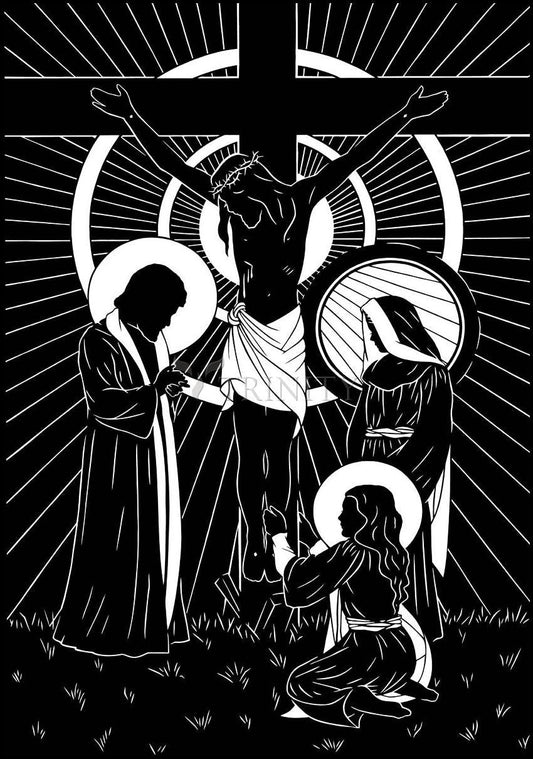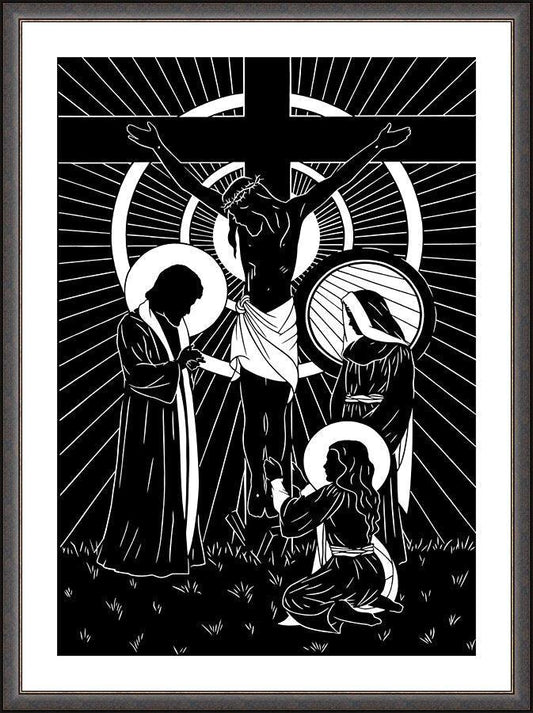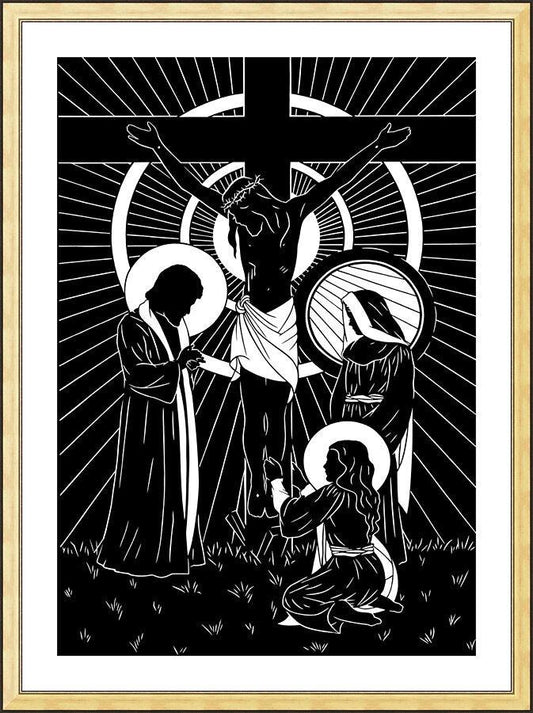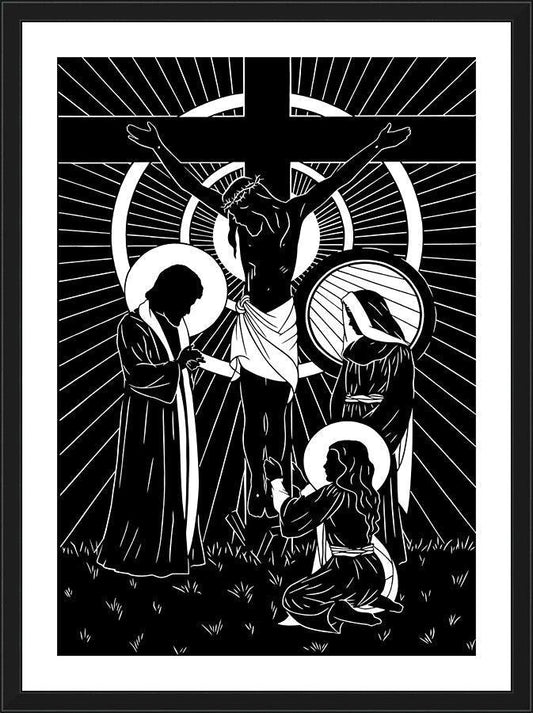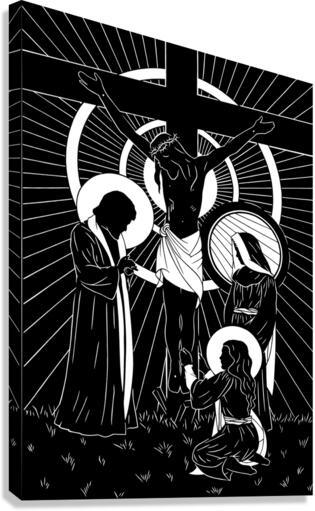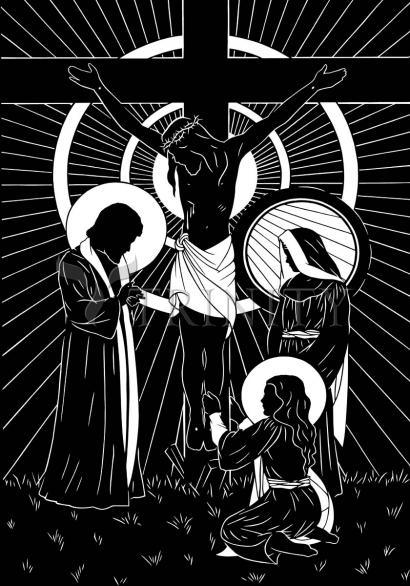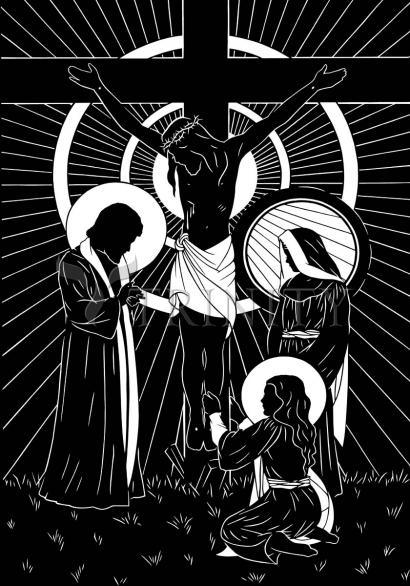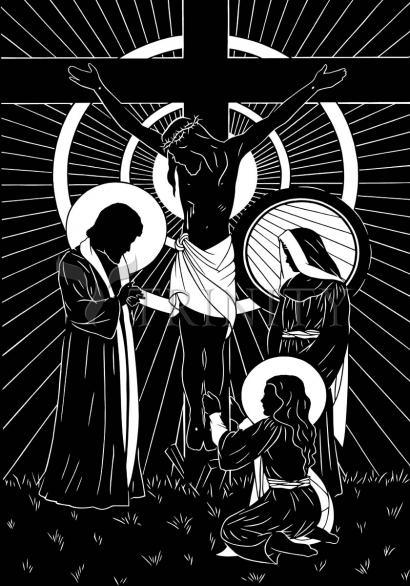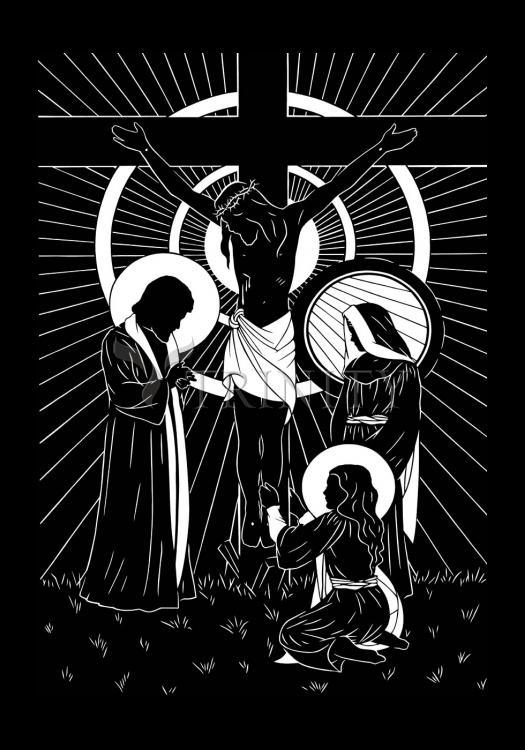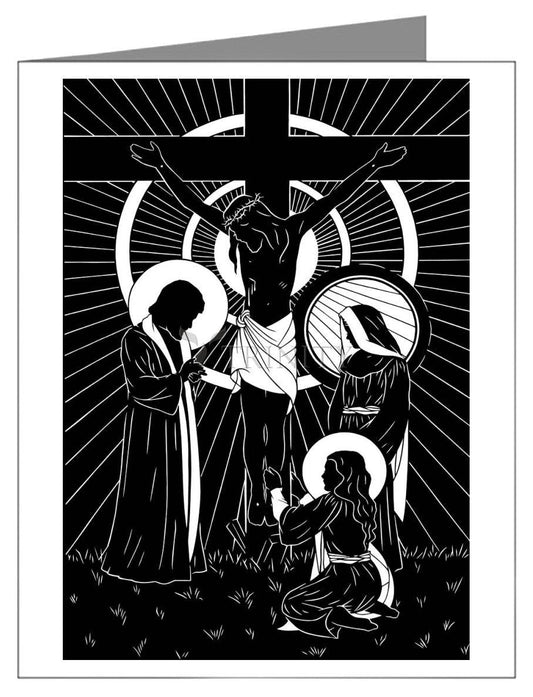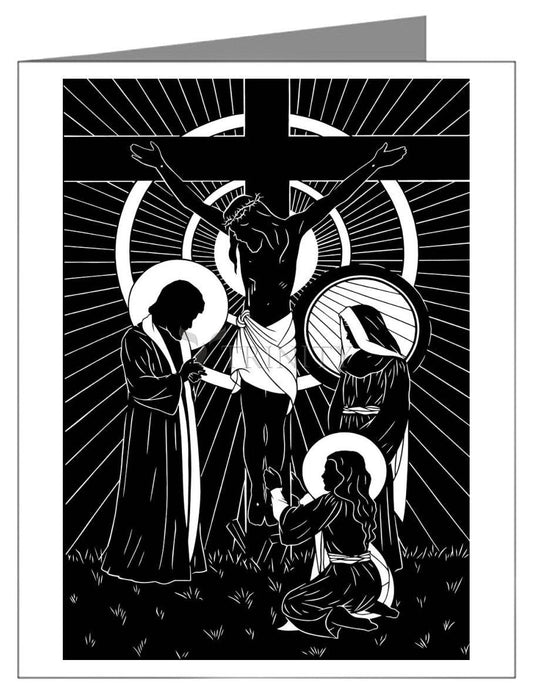The greatest desire of every Christian should be to draw nearer to our Lord, God and Savior, Jesus Christ. Many are the means provided for us to do so; among them are the sacraments, the Holy Gospel, and prayer. A special means of drawing closer to Christ is through devotion to His most pure Mother, the Ever-Virgin Mary. Our Lord dwelt in her as a babe in her womb. He was always with her, either by His physical presence, as when He lived with her in Nazareth, or spiritually, in her constant prayerful communion with God. This union was not broken by death, and she now occupies a particular place of closeness to her Son in heaven.
It was through Mary that God chose to come to mankind. He made her cooperation the condition for His appearance on earth. Since our Lord came to us through Mary, it is fitting that we come to Him through her. To this end He made her our mother also. At the very moment of His supreme sacrifice, as He was dying upon the Cross for our salvation, He said to His beloved disciple, Saint John, Behold thy mother, and to His Mother, Behold thy son (John 19:26-27), thus signifying that His Mother was to be the spiritual mother of all Christians, who, in the person of Saint John, became her children.
The Orthodox affirmation that Mary is the Mother of God (Theotokos) confesses our belief in Jesus Christ as God. All Orthodox devotion to Mary is founded upon this principle. In Orthodox iconography, Mary is almost always represented together with her Son. She is a means, a way to the goal, which is Christ. True devotion to the Mother of God brings us unfailingly to her Son Jesus Christ, our Savior and God.
Protestants often reproach us for our veneration of the Mother of God. They say it is unscriptural, and that Christ is our sole Mediator with the Father. It is true, in the Bible there is little about Mary. But after all, the New Testament is primarily the story of Christ, His life and teachings, and the story of His Church, as told by His Apostles. It would have been characteristic of the most pure Virgin not to seek a prominent place in the telling of that story, preferring, in her supreme humility, to remain in the background. Then again, had the Apostles written much about the greatness and glories of Mary, it might have seemed to the pagan world in which they lived that she was some sort of goddess to be worshipped, on account of her closeness to God. Much more about Mary entered the unwritten tradition of the Church, and was passed on by word of mouth for years before it was finally recorded in works of the Holy Fathers. And yet, for those with "eyes to see", the Holy Virgin is very much present in Scripture. In the Old Testament the Church sees her prefigured under many images and symbols, such as the burning bush and Jacob's ladder.
And in the New Testament she figures in the most important events surrounding the economy of our salvation: the Incarnation and Nativity of Christ, His redeeming Death on the Cross, the Descent of the Holy Spirit " when she was together with the Apostles at prayer in the upper room. It was at her behest that our Lord performed His first miracle " turning water into wine at the marriage feast in Cana. Without exaggeration one can say that she inaugurated the New Testament, when she heard the greeting of the archangel: "Rejoice, full of grace" and made the leap of faith and said "yes" to God, agreeing to bring His Son into the world as its Redeemer.
Those who do not know the Mother of God are like motherless orphans. But what are we if, having such a mother, we neglect her? Orphans inspire pity, but children who neglect their mother are worthy of contempt. If we live in the spirit of the Church, we shall never neglect our mother, the Mother of God. There is not a single service of our Church that fails to invoke her name; the liturgical year is adorned with her feasts; no Orthodox church or home is without an icon of her. The prayer, "Virgin Mother of God, rejoice..." is part of our daily rule. Our whole prayer life echoes with the oft-repeated cry, "Most holy Mother of God, save us."
We can never say enough about the Mother of God. As one hymn puts it, "Every tongue is at a loss to praise thee as is due: even a spirit from the world above is filled with dizziness, when it seeks to sing thy praises, O Theotokos" (Irmos, Ninth canticle of Matins for the feast of Theophany). However, all that we say and sing concerning the Mother of God will remain pretty poetry and sweet sentiment if we do not give her a real role in our lives. We should speak to her as to our mother, with honor and love, trusting in her maternal care and affection. If we make her a part of our lives, we shall always be striving to imitate her virtues. And when we fall short, as we so often do, we can run to her for forgiveness, knowing that she is the "Surety of sinners" and their "Unexpected Joy", reconciling us with God. We can always bring our troubles and sorrows to the Mother of God, because she who suffered so intensely together with Her Divine Son in His Passion is well able to understand our sufferings. She can give us the strength to bear our afflictions; as the "Joy of all who sorrow" she can "Assuage our sorrows."
Today, as we struggle against the imposition of a culture where everything is tolerated but the pure truth of Jesus Christ, we desperately need the spiritual support which the Mother of God offers to those who honor her. For Orthodox Christians she is an "invincible rampart" of spiritual life, "ever watchful in her prayers." Among human beings she is the summit of perfection. Her entire life was spent in conformity with the will of God. She, better than anyone who has ever lived, was blessed in hearing the word of God and keeping it. The more we come to know the Mother of God and appreciate her role in the whole scheme of our salvation, the more reason we will find to give thanks to God for bestowing her upon us as our mother.
"Excerpts from "Behold, Thy Mother", Orthodox America, by Hieromonk German



